On June 14, at Hanoi National University, the International Camel Day celebration took place with the theme: “The role of camels in Saudi Arabia’s cultural heritage”.
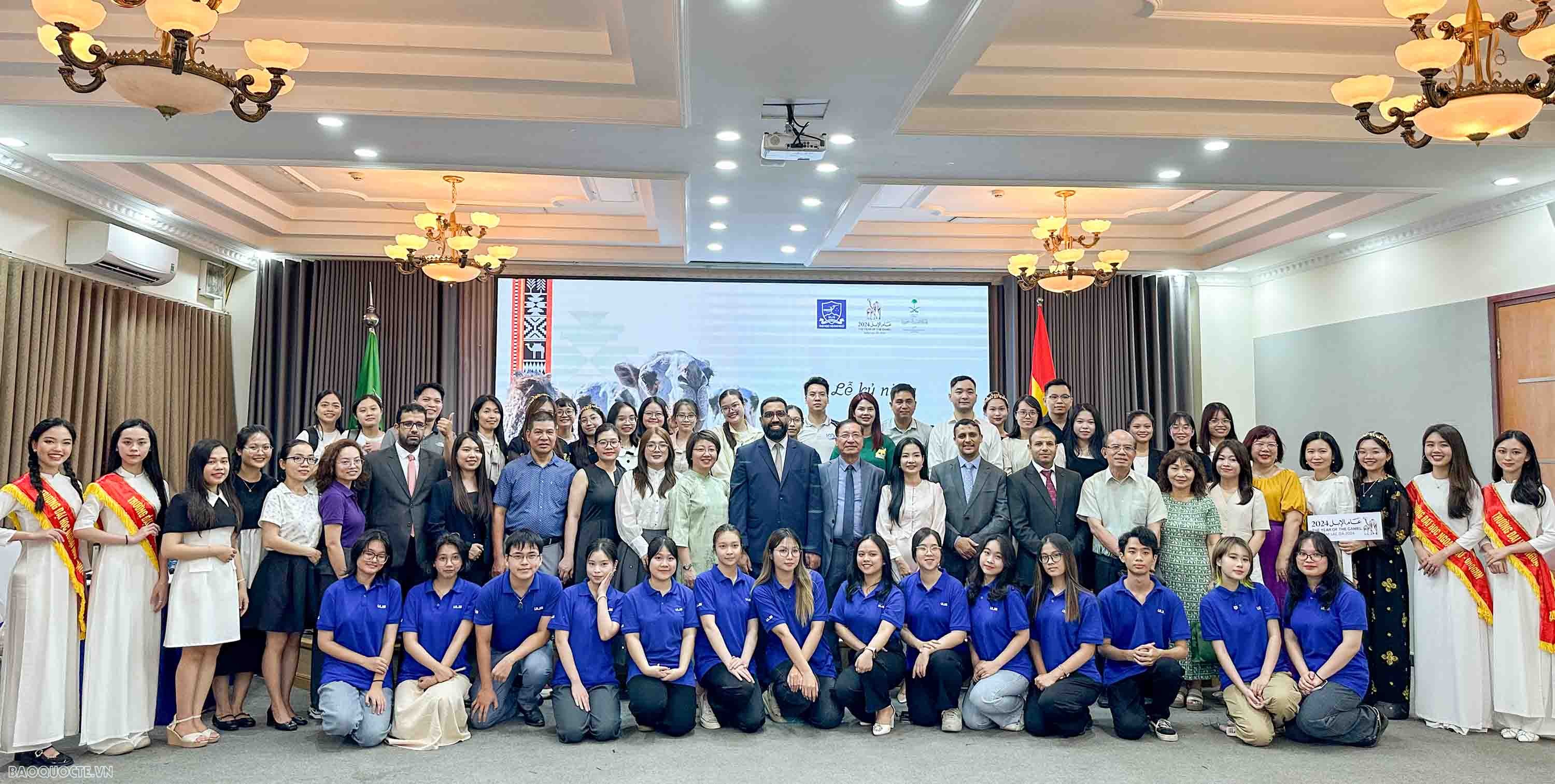 |
| Delegates attending the International Camel Day celebration with the theme: “The role of camels in Saudi Arabia’s cultural heritage”. (Photo: Nguyen Hong) |
The program is organized by the Embassy of Saudi Arabia in Vietnam in coordination with the Department of Arabic Language and Culture, National University of Foreign Languages, Vietnam National University, Hanoi.
Speaking at the program, Mr. Hamoud Almutairi, Chargé d'Affaires of the Embassy of the Kingdom of Saudi Arabia in Vietnam, said that throughout history since the formation of Arab culture, camels have been beloved animals, leaving a deep mark in the lives of the residents of the Arabian Peninsula. Camels are likened to "desert ships", thanks to camels, ancient Arabs were able to settle and move in the desert. Camels are mentioned in the Qur'an and occupy an extremely important position in the minds of the early Arab people.
In this regard, Mr. Hamoud Almutairi shared his pride and appreciation for the great symbolic value of the camel in Arab culture. “We are well aware that Arab culture needs to express, preserve and reflect the close relationship that has existed since ancient times between the Arab people and the camel,” said the Charge d’Affaires of the Saudi Embassy.
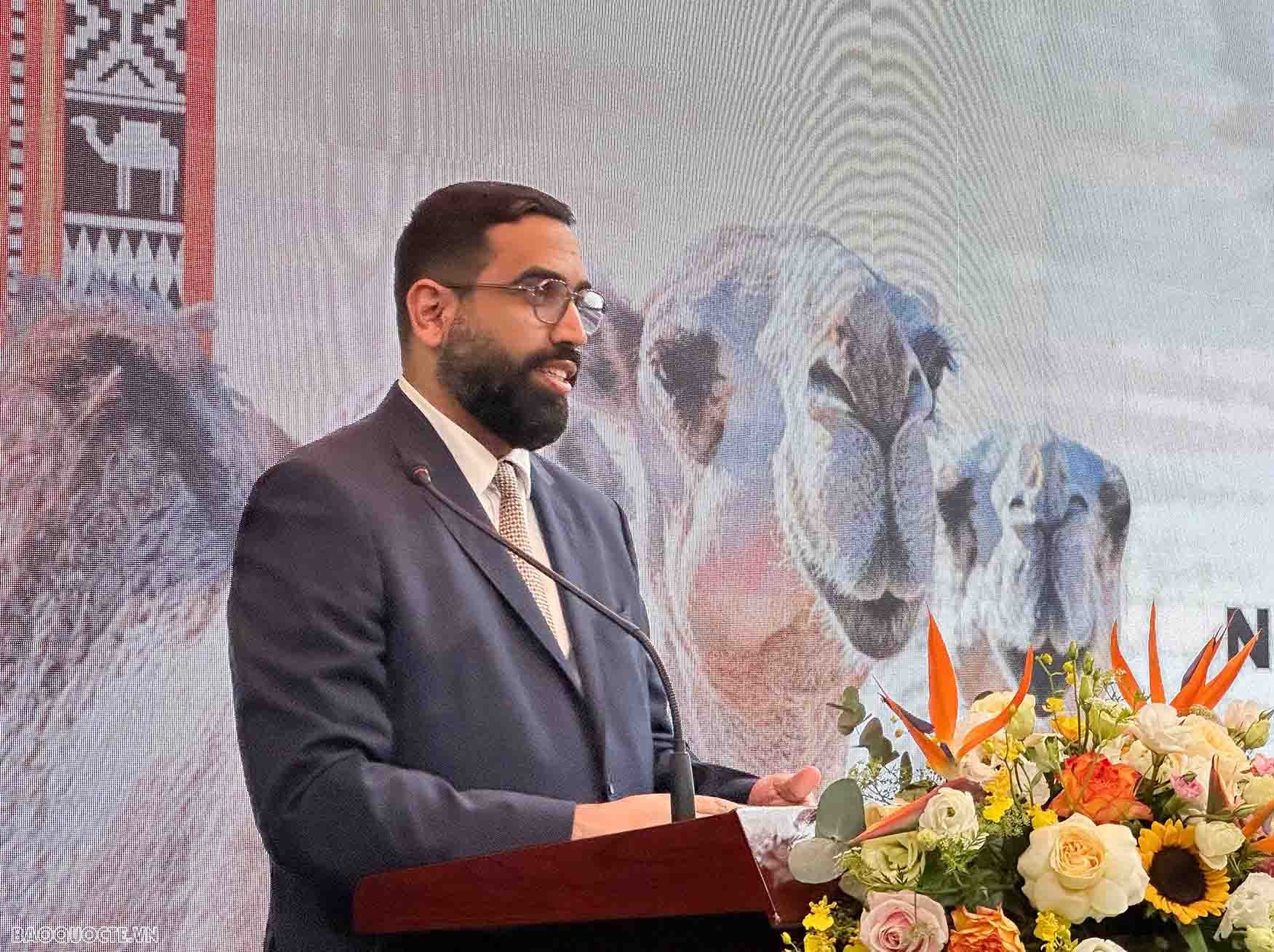 |
| Mr. Hamoud Almutairi, Charge d'Affaires of the Embassy of the Kingdom of Saudi Arabia in Vietnam, spoke at the program. (Photo: Nguyen Hong) |
Currently, the Saudi Arabian government is always interested in caring for and preserving camels and within the framework of that effort, the Saudi Arabian Council of Ministers has decided to designate 2024 as the “Year of the Camel”, to honor the unique cultural values of camels in the lives of the people of the Arabian Peninsula, as well as to consolidate the firm position and increase the presence of camels in the region and on the international stage.
Grandfather Hamoud Almutairi said that Saudi Arabia is currently making efforts to promote and develop the camel breeding industry; highlighting the importance of this industry in economic development and food security; as well as preserving national identity, enhancing the understanding of generations about cultural heritage and introducing these cultural values .
On behalf of the Board of Directors of the University of Languages and International Studies - Vietnam National University, Hanoi, Vice Principal Ha Le Kim Anh said that as the first Arabic language training institution in Vietnam, the school always encourages students to continuously study and research the language in parallel with Arabic culture - one of the great cultures of humanity.
Ms. Ha Le Kim Anh said that the symbol of "camel" that when mentioned can immediately bring to mind a vast desert, covered with golden sand, but not everyone knows the role of "camel" in the lives of Arab people.
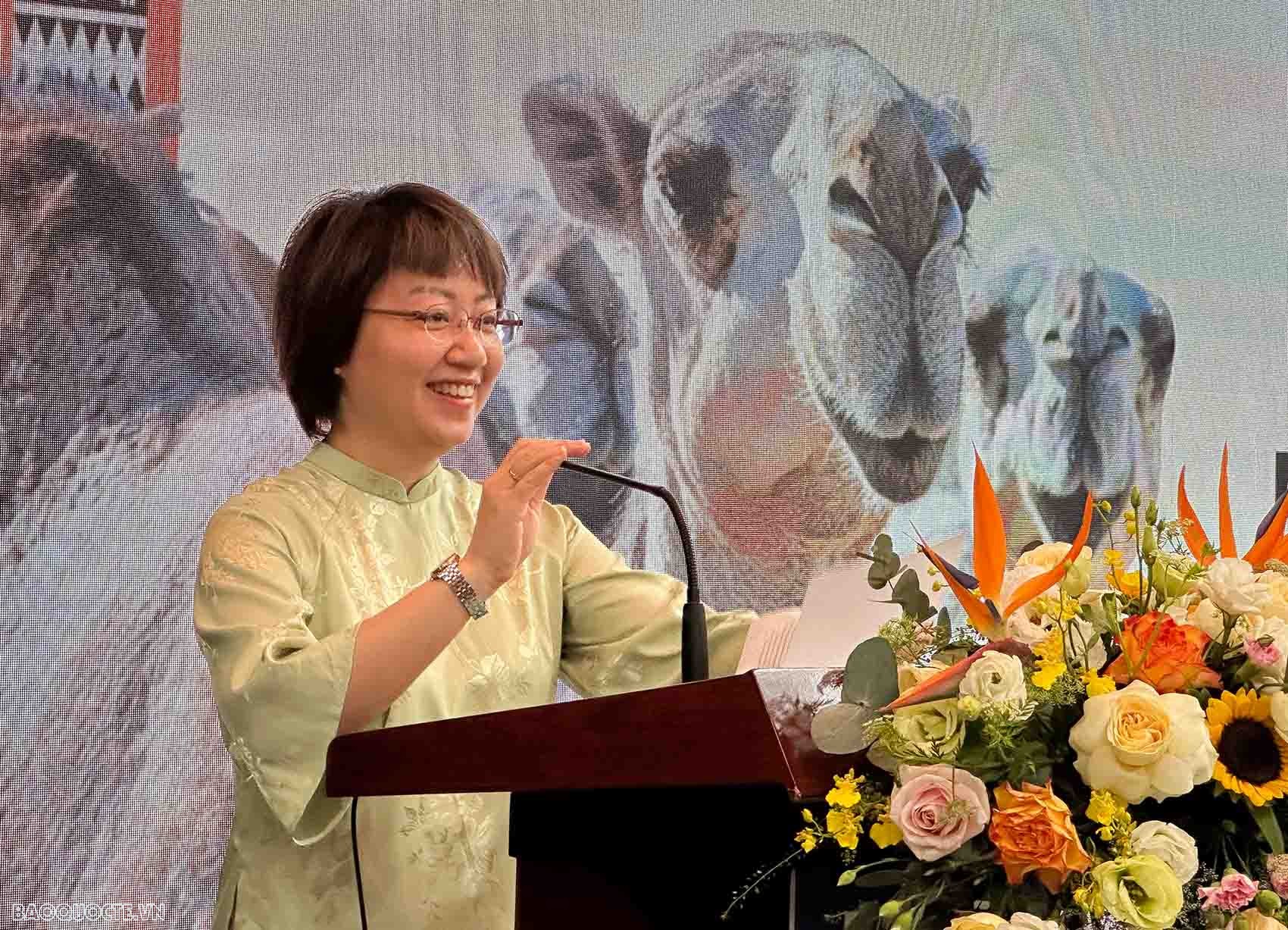 |
| Vice Principal of the University of Languages and International Studies - Vietnam National University, Hanoi, Ms. Ha Le Kim Anh spoke at the program. (Photo: Nguyen Hong) |
The Vice Principal of the school emphasized that this event is a valuable opportunity for each delegate attending the event to learn more about the "camel" symbol of the Arab world.
Camels are animals that play an important role in the lives of people in Arab countries. With a wide variety of species, camels have played a key role in the development of human society, especially in arid and semi-arid regions since their domestication about 3,000-4,000 years ago and are not only used as a means of transportation, but also as an important source of food and raw materials. With the ability to withstand harsh conditions well, they have become a reliable and sustainable source of livelihood.
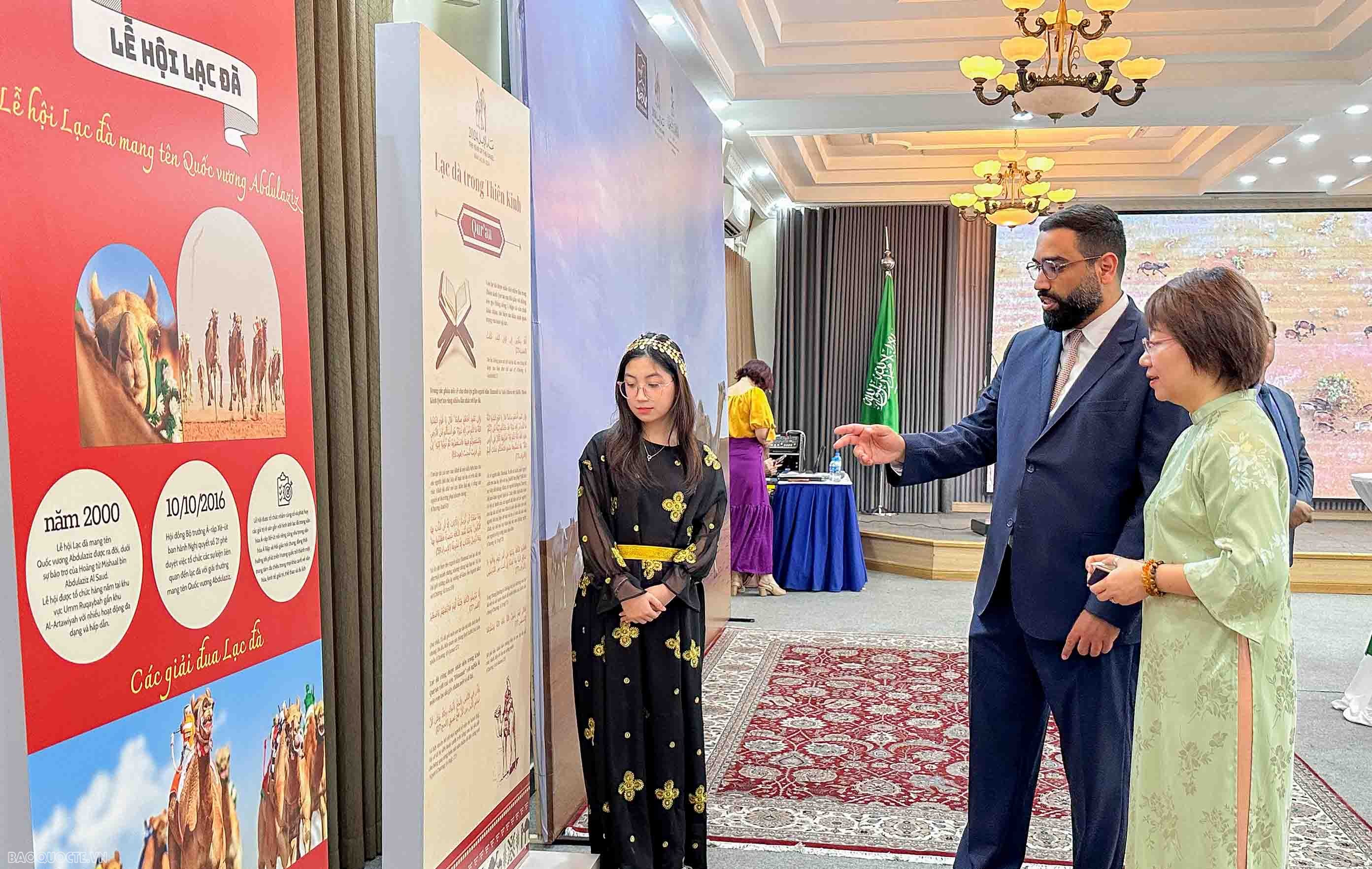 |
| Mr. Hamoud Almutairi, Charge d'Affaires of the Embassy of the Kingdom of Saudi Arabia, said that the Saudi Arabian government always cares about caring for and preserving camels. (Photo: Nguyen Hong) |
In addition, camels have many other benefits, camel products are one of the main export items to ensure food security. People in the Arabian Peninsula use milk, hair, leather, and meat of camels, from which a symbiotic relationship between humans and camels in the vast desert arises, humans take care of camels, in return camels help humans live and move in the harsh natural environment.
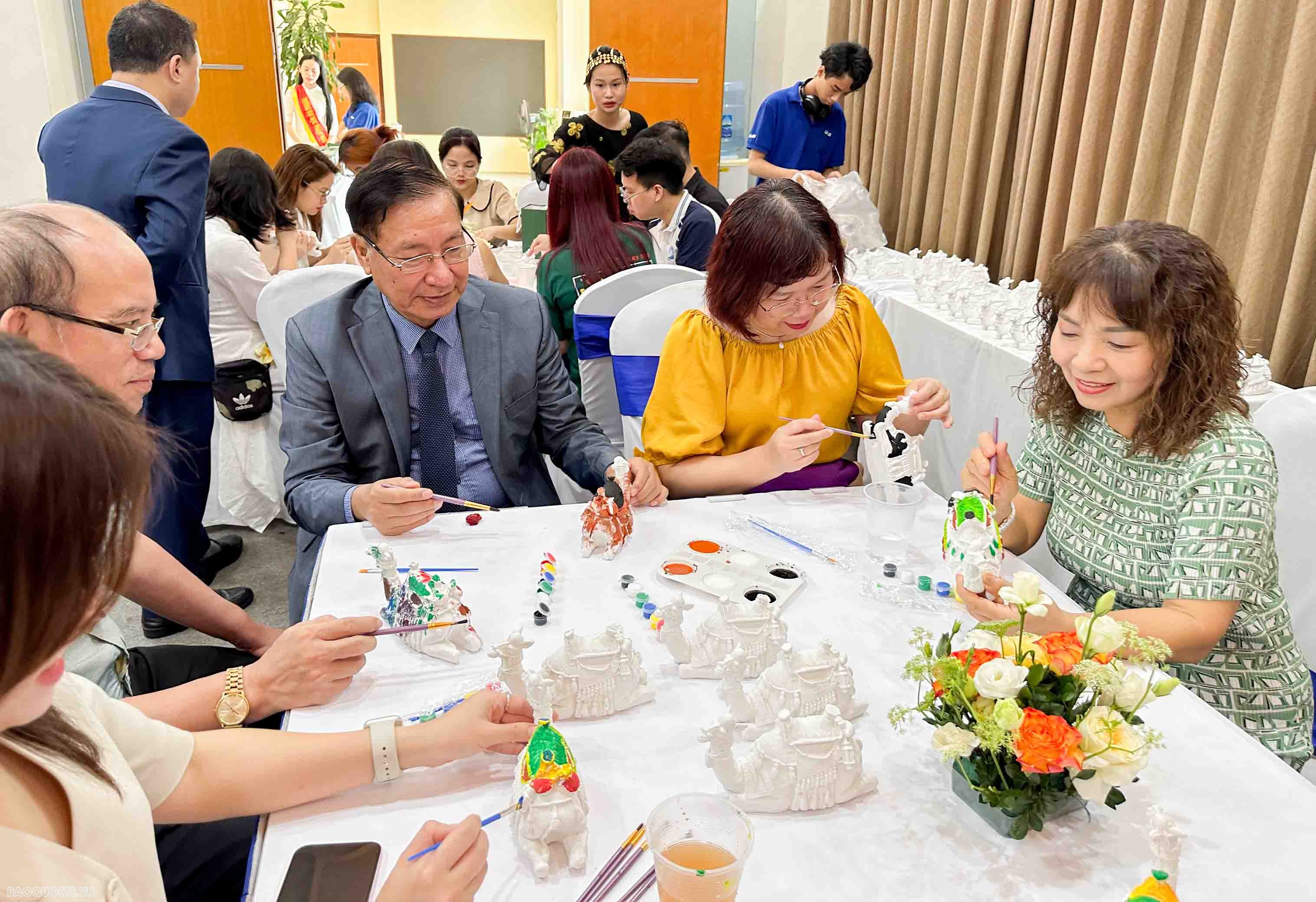 |
| At the program, delegates participated in camel painting activities and enjoyed Saudi Arabian cuisine. (Photo: Nguyen Hong) |
Source: https://baoquocte.vn/lac-da-trong-di-san-van-hoa-saudi-arabia-274984.html





![[Photo] Prime Minister Pham Minh Chinh receives Mr. Jefferey Perlman, CEO of Warburg Pincus Group (USA)](https://vstatic.vietnam.vn/vietnam/resource/IMAGE/2025/4/18/c37781eeb50342f09d8fe6841db2426c)


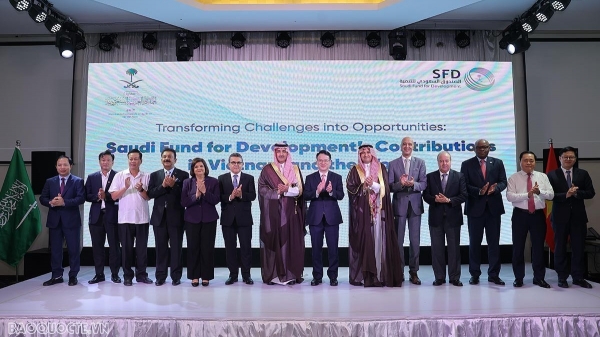
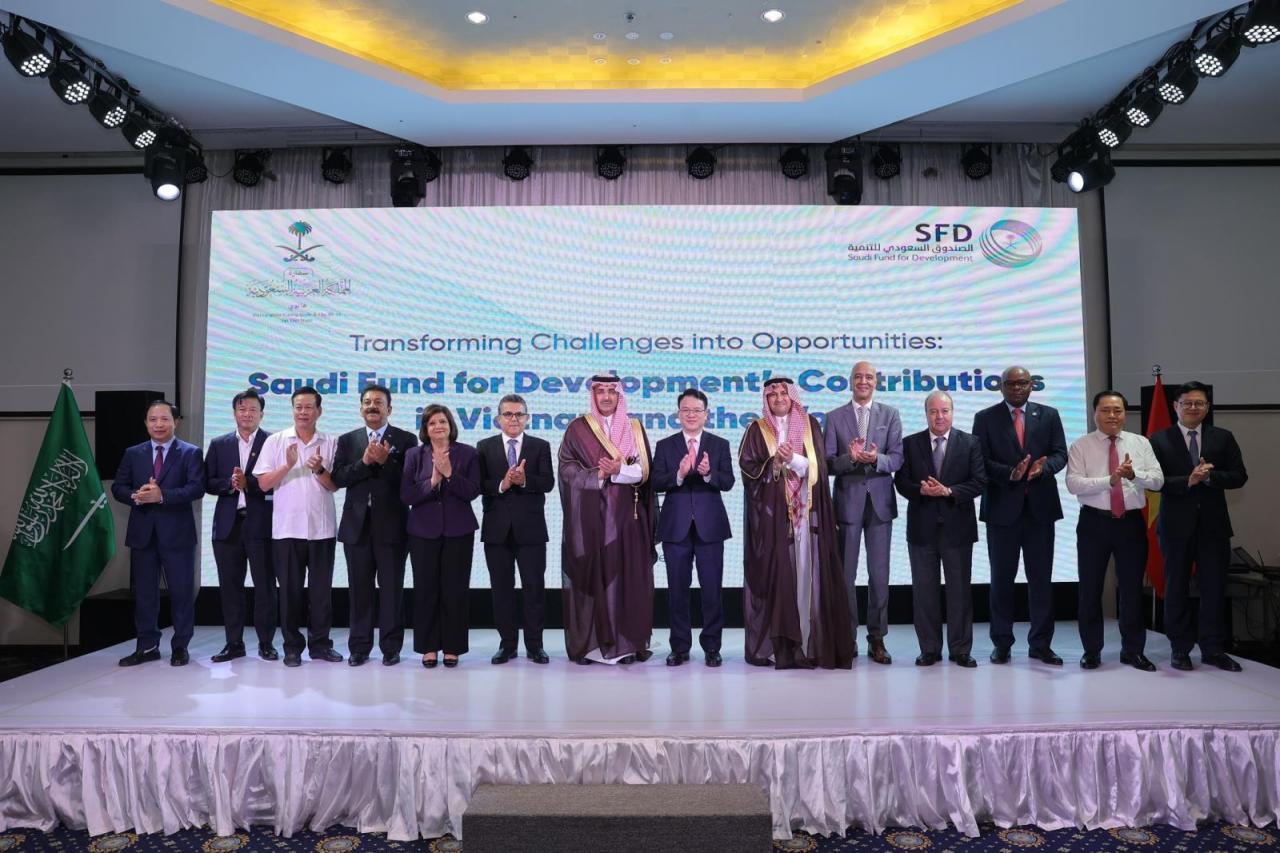

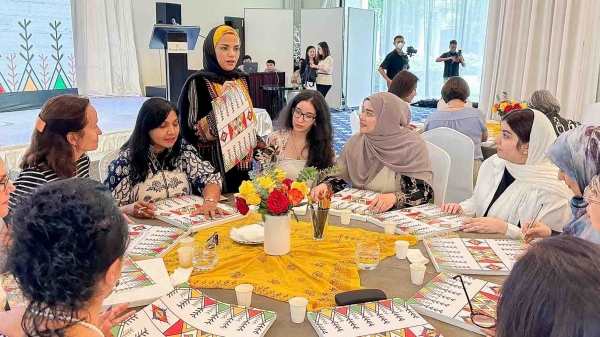
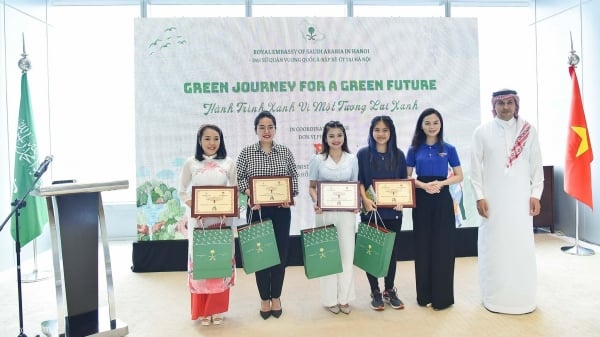
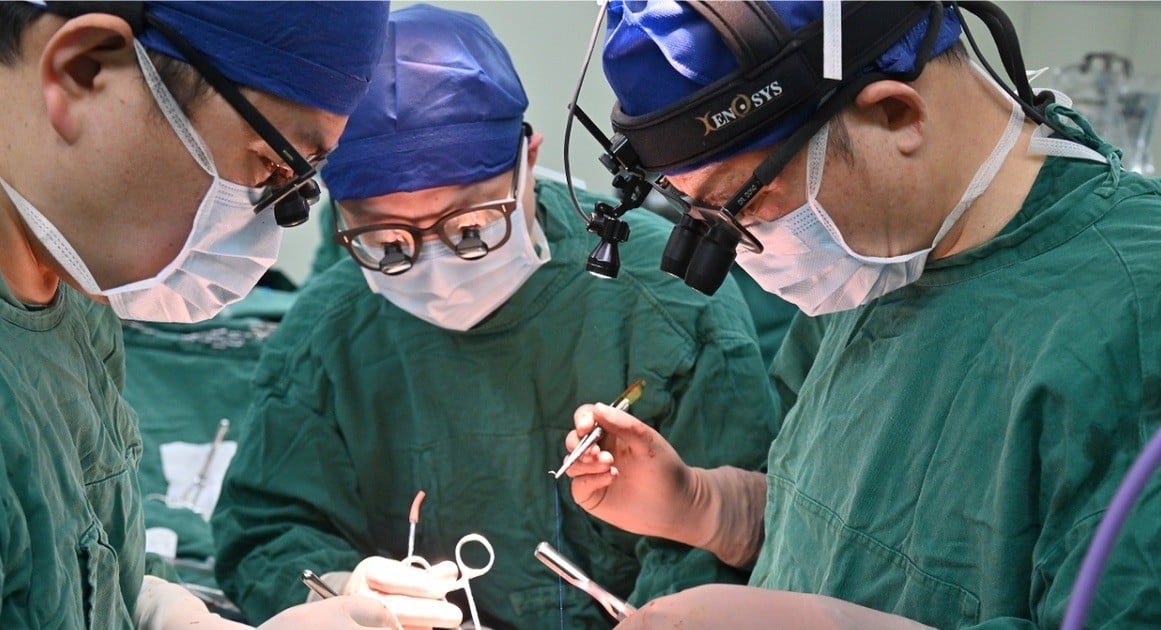
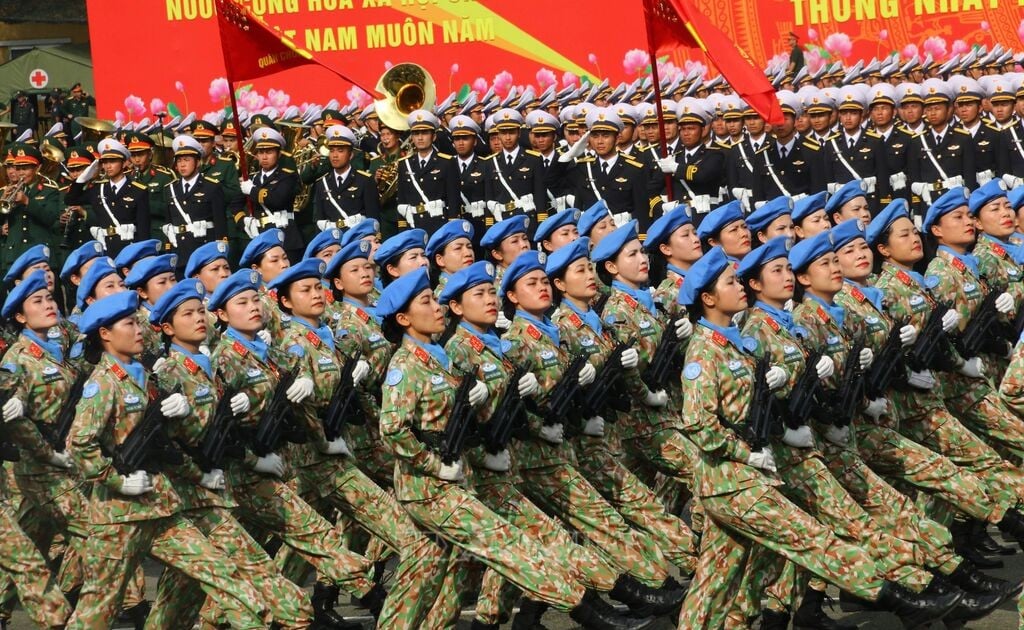
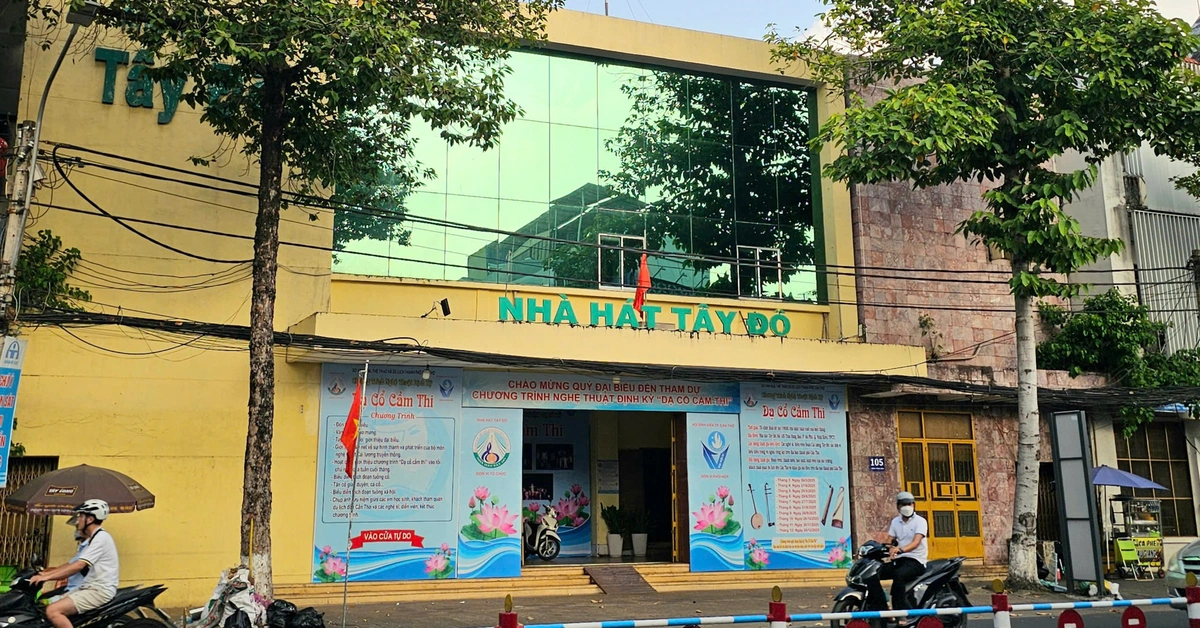
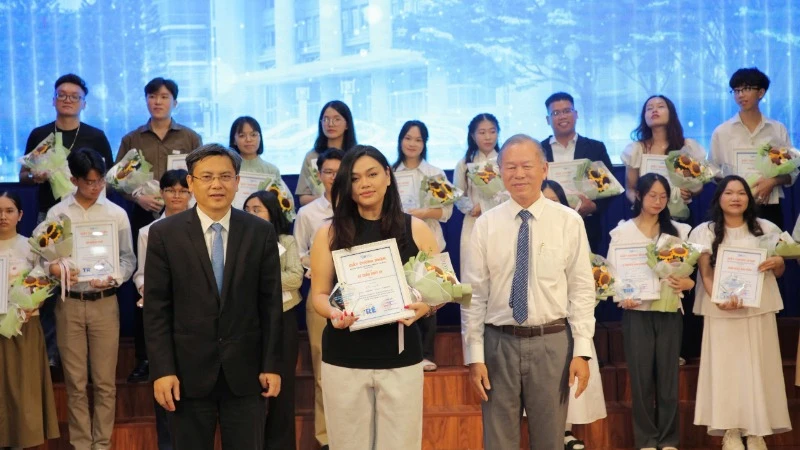
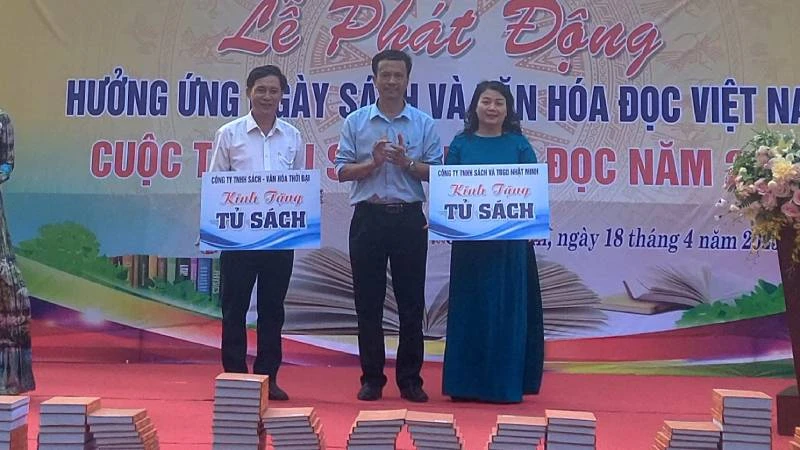
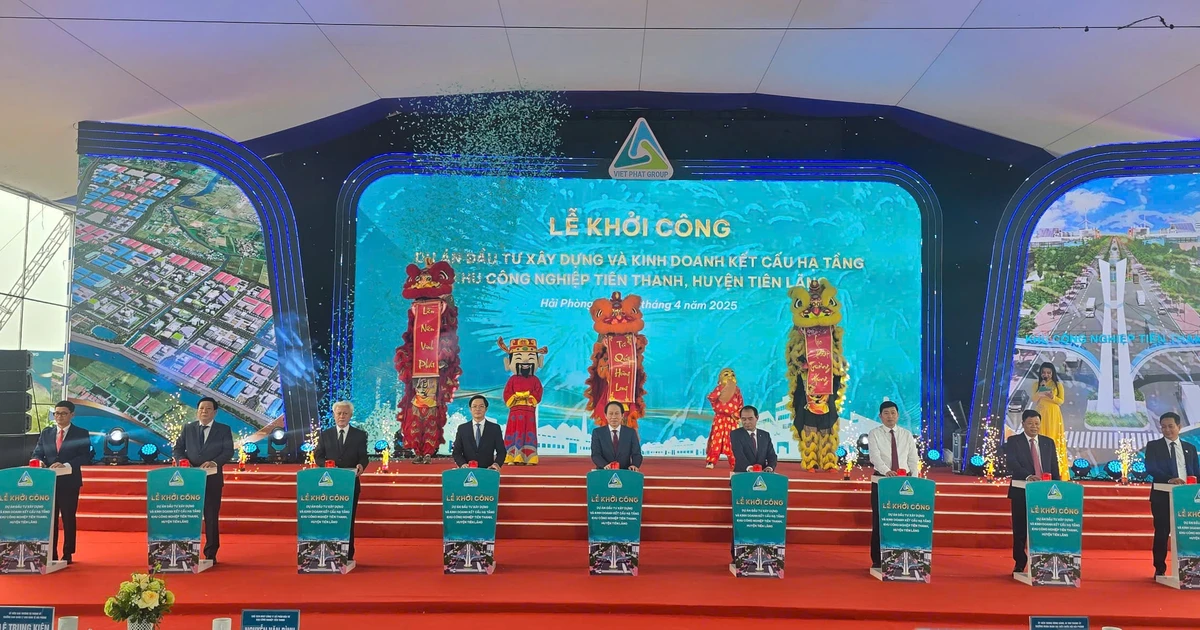




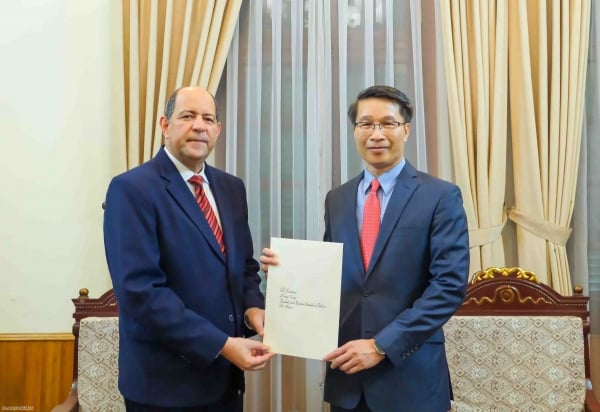
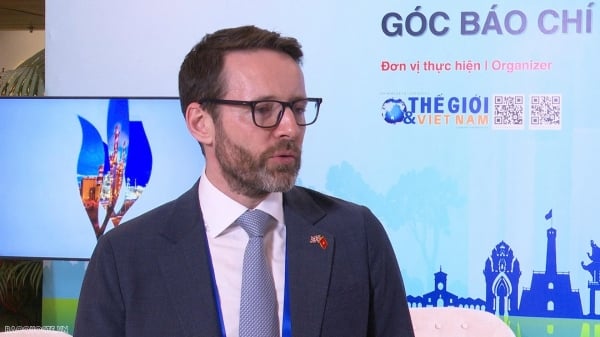
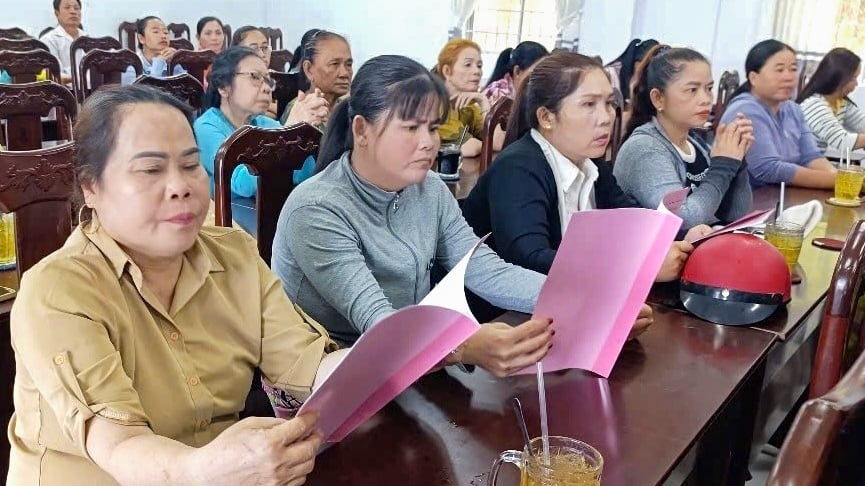




































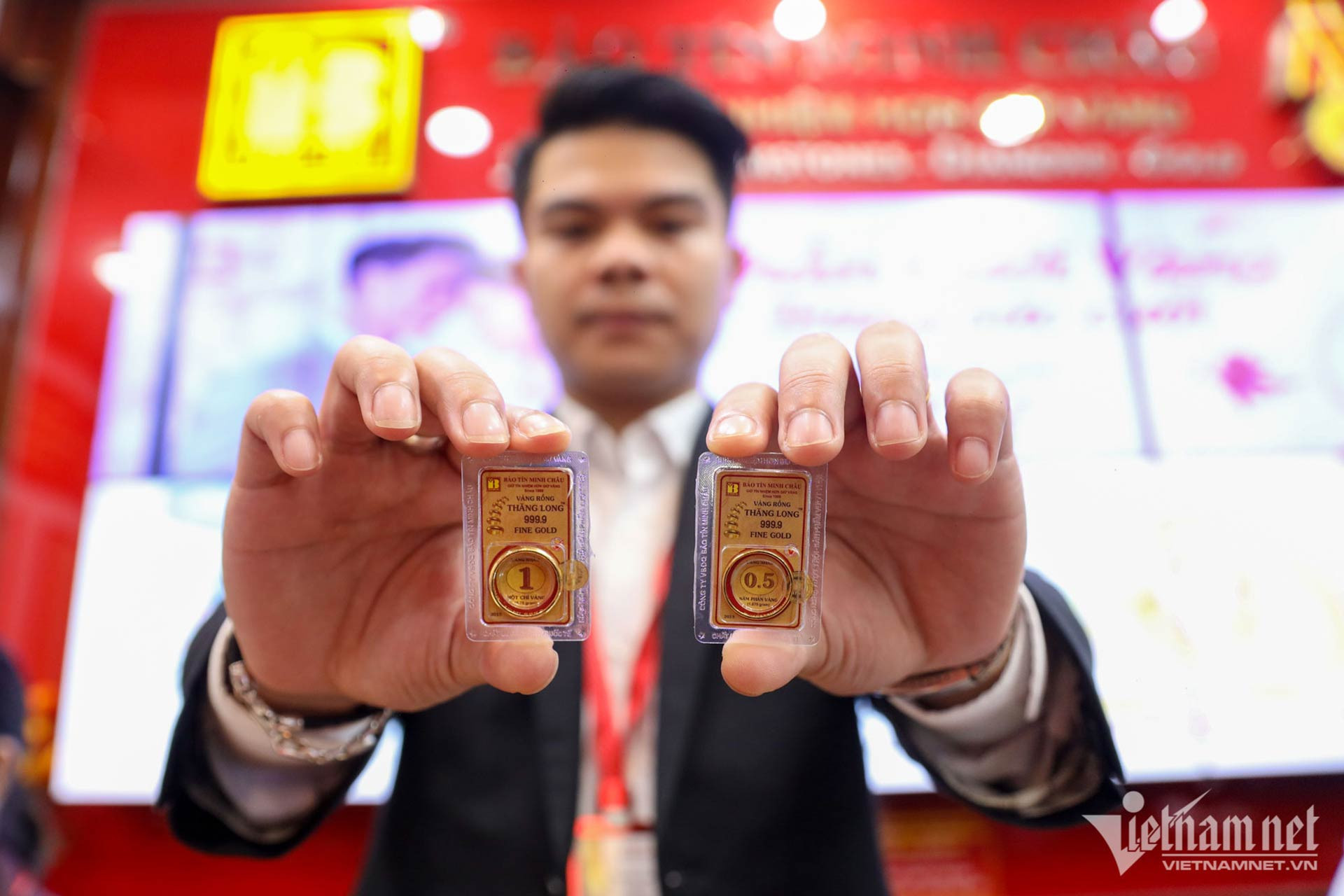










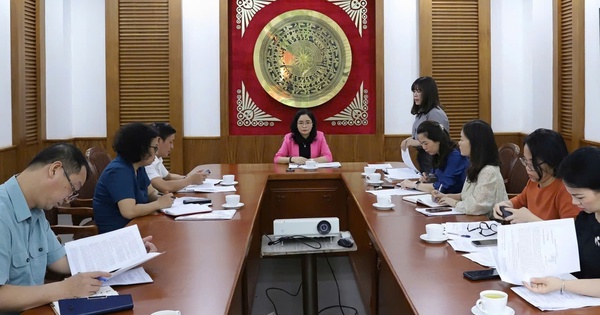


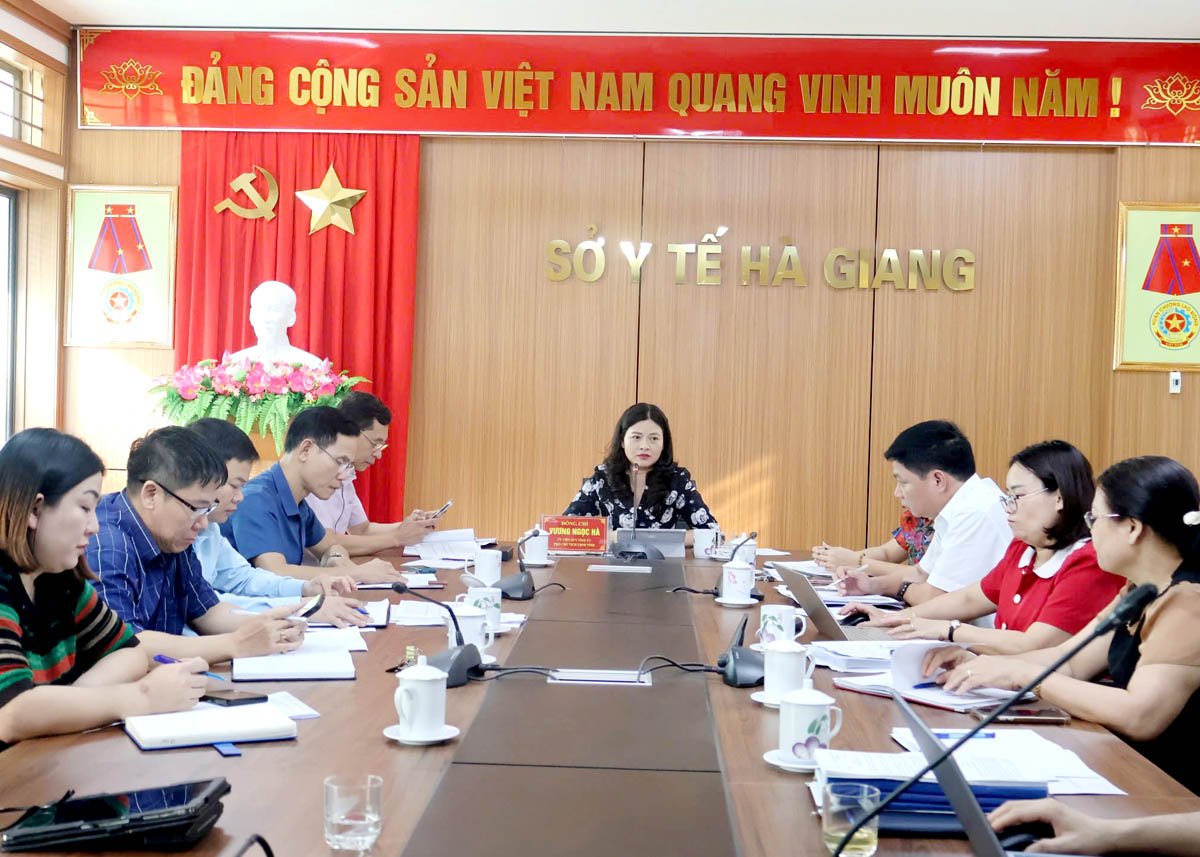
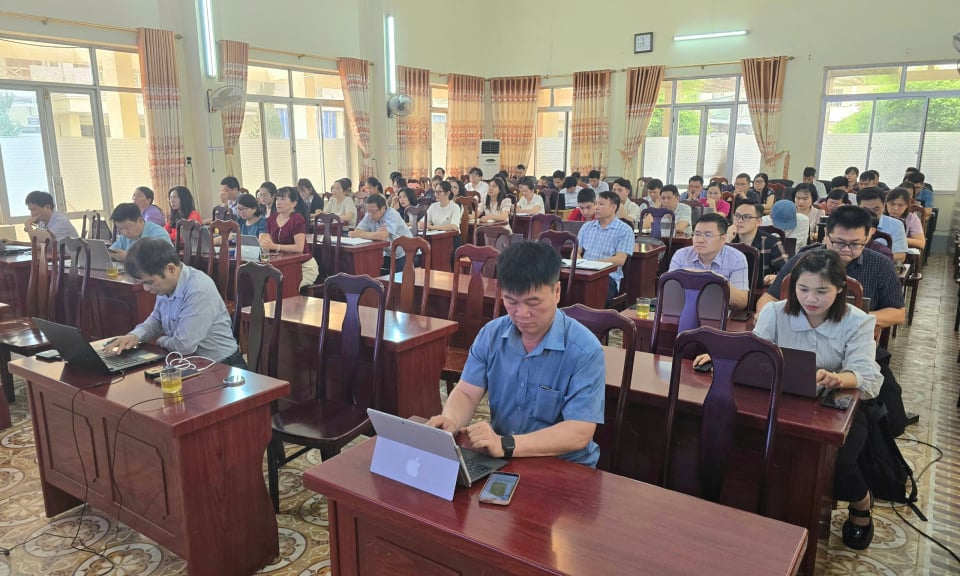
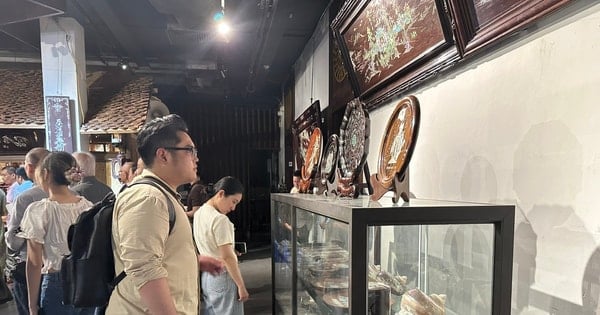

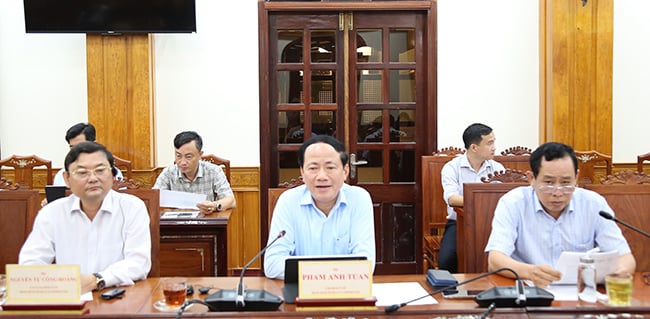
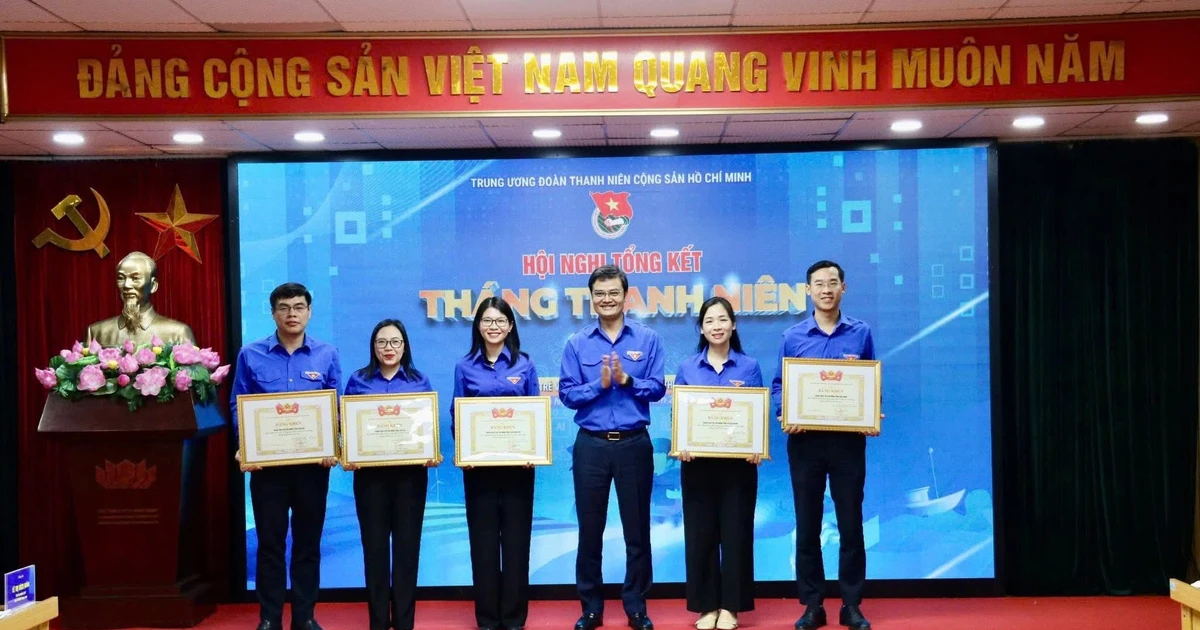











Comment (0)